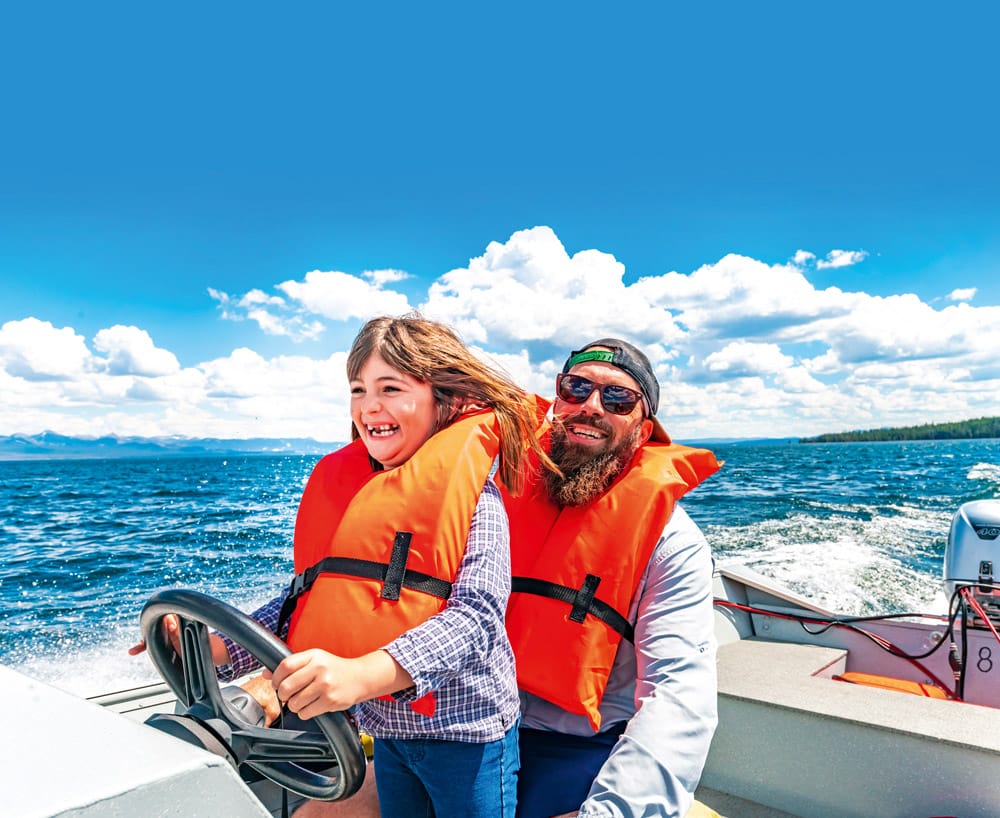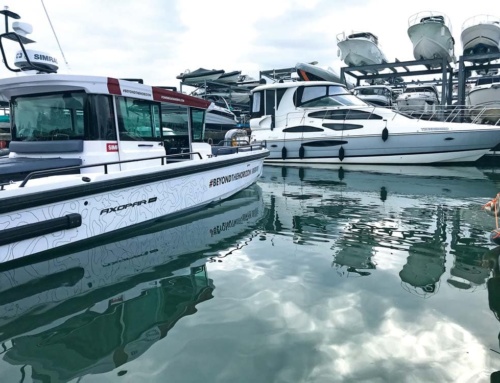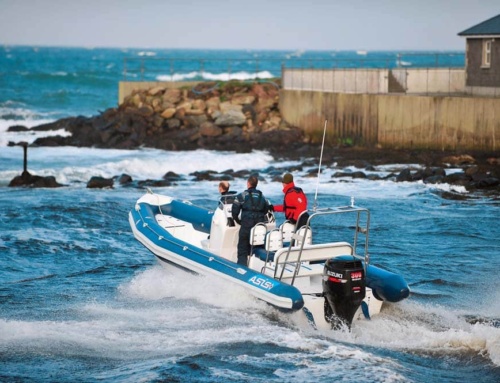Paul Glatzel considers the vital role played by a good skipper …
When we think of a ‘skipper’, we tend to think of commercial boats and a salty old seadog with their flat cap and maybe even a Popeye-type pipe. What we don’t tend to think of is you, your partner and family members – i.e. regular people just heading out for a great day afloat. As much as that stereotypical salty seadog is very much a skipper, so too are you, and in this article we’ll look at what that means in practice and what you can, and perhaps should, do to be the best possible skipper you can be.
Whether you work on a commercial boat or have a pleasure craft, the person in charge is the skipper and that skipper has a duty of care both to all those on board and to others on the water.
So what can you do to become the best skipper you can possibly be? There is no ‘perfect’ skipper and everyone will have a different view as to what ‘best’ is, but for me, a great skipper needs the following qualities: being knowledgeable and having a passion for sharing that knowledge; being humble and realising that every day afloat is a school day and one is always learning; not feeling the need to do everything oneself and using the time afloat to develop the skills of others; and if things go wrong, taking responsibility, leading from the front, never blaming others and then learning from the experience.
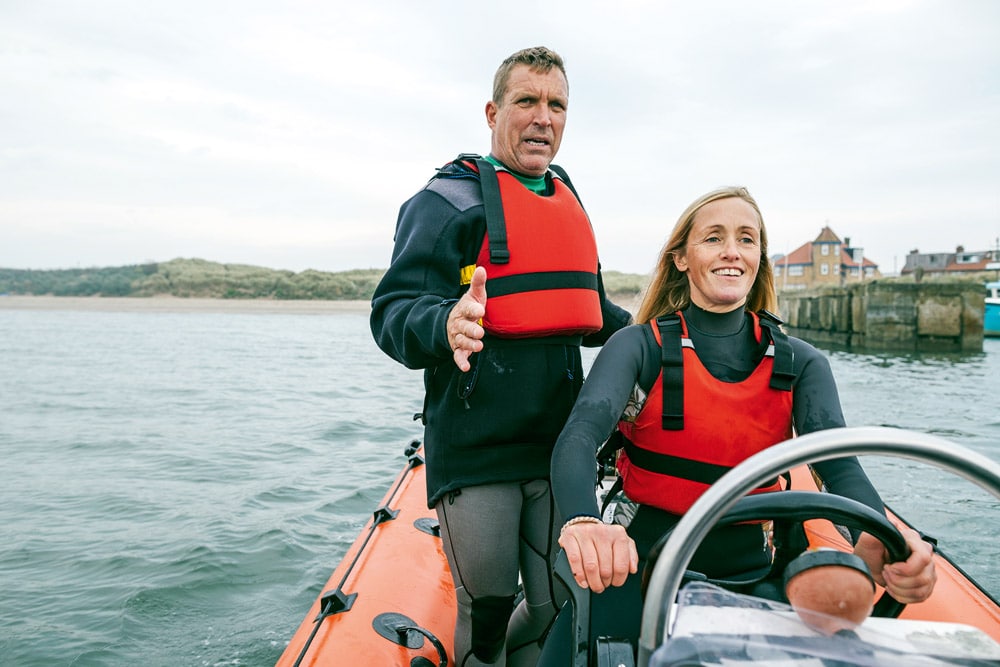
A shot of an instructor teaching a member of staff how to sail a dinghy boat in the sea, they are wearing safety life jackets in Northumberland.
So how can we achieve our aims and hit the heights as a skipper? In terms of being knowledgeable, that comes from experience and learning through courses, as well as the likes of YouTube and online articles and magazines. The key is sharing that knowledge and helping others to be better. Do you teach others how to tie and use knots? Do you get them lassoing lines onto cleats? Do you encourage them to helm the vessel? Getting everyone from children to those ‘older’ kids doing things gets them far more involved and spreads the knowledge. It also makes it more fun for others!
Another great way to get others involved concerns the subject of safety. Show those that you boat with regularly how to issue a distress via the VHF, how to deploy flares, how to check whether life jackets are correctly fitted and all the other things they may need to know to be safe on board. A good way to get kids used to using the VHF is to get them to call up the marina for a berth or to arrange a refuel.
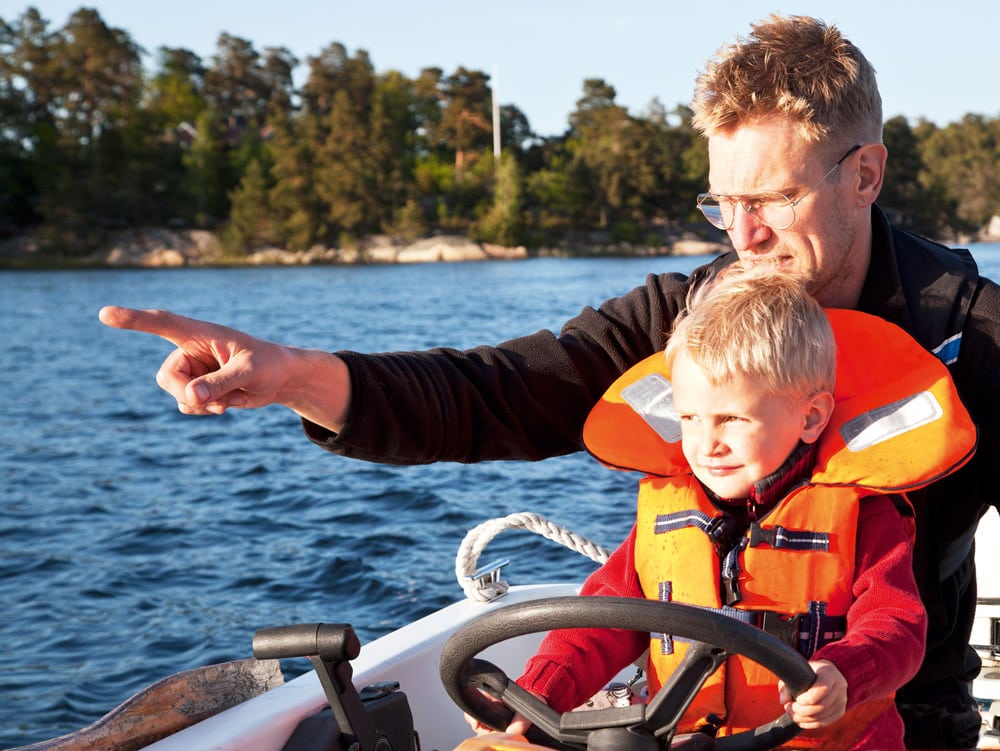
Father and son steering small boat in Stockholm Archipelago
One of the areas where I see skippers falling short more commonly than anything else is communication. Ask yourself a question: When you come alongside, do your crew do what you need them to? When it doesn’t go quite right, do you raise your voice? Have you ever shouted at the kids or your partner? Great if the answer is no, but if you have spent any time in a marina you’ll know what I mean, as you will have seen and heard people not getting it quite right. Make sure that as a skipper you plan what you want to do and then you brief those around you really clearly. Get the crew to repeat back what you have agreed so you can see if they understood it. Remember at every stage that if they don’t quite grasp it, you should assume that it’s your explanation that’s a bit off rather than them being the issue. At that point, rebrief them, confirm their understanding and go again. Equally, if the crew don’t deploy the lines as you want, you should again assume it’s down to your explanation rather than incompetence on their part. Back away, rebrief and go again.
Going back to the subject of responsibility, as skipper, you need to ensure that you adhere to the rules that govern the operation of your boat.
This of course means the collision regulations, but it also means local by-laws (search online for them on the local harbour master’s website). And while it may surprise you, under the Merchant Shipping Act you also have an overriding responsibility to ensure the safety of those on your boat and others – even if it’s a pleasure craft you are on and it’s just friends and family out with you. None of this should really be an issue, as if we act sensibly and do what we need to, we’ll fulfil our duty to those on our boat and others.
As a skipper, you can make a huge difference on your craft and to those that boat with you. Getting the best from others and inspiring their boating future is something special to be part of.
Keep safe and have a great time afloat!
Check out Powerboat and RIB TV
Paul Glatzel and Tom Montgomery-Swan discuss all aspects of getting afloat. The RYA Powerboat Handbook and the RYA Advanced Powerboat Handbook are available in print or as e-books from the RYA shop at rya.org.uk/shop.

